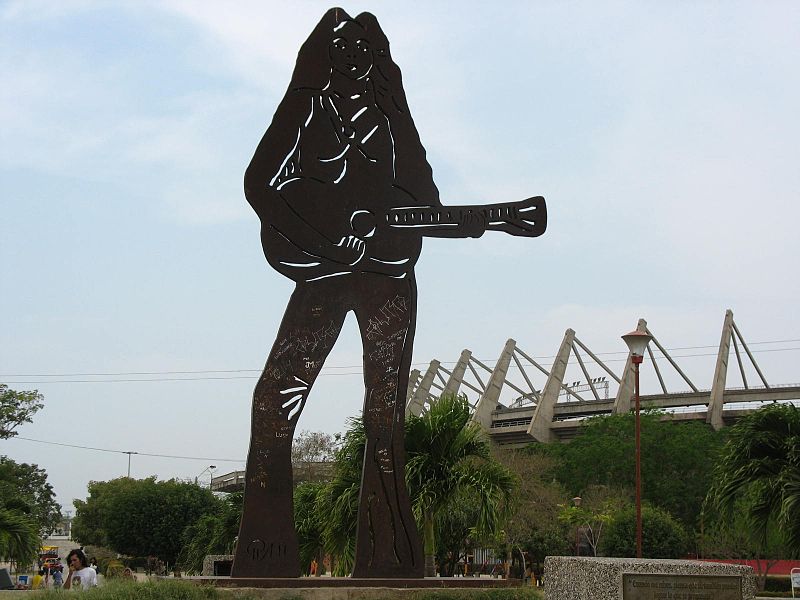Led Zeppelin was a well-known band in the 1970s. With its unique style, cryptic album art, and an estimated over 300 million sold records, Led Zeppelin was considered one of the best-selling music artists in history. The band members included Jimmy Page on guitar, vocalist Robert Plant, John Paul Jones as the bassist, and drummer John Bonham. All of them came from England.
Led Zeppelin pioneered the concept of album-oriented rock and was known for refusing to release popular songs as singles. The world-renowned band was famous for their innovative hard rock music while doing unpredictable live acts resulting in dynamic performances. The group made numerous concert tours from the late 1960s to the 1970s. Led Zeppelin made early tours in the UK, but their live concert performances in the United States led them to fame.
Featured tracks such as “Good Times Bad Times,” “Dazed and Confused,” and “Communication Breakdown belonged to the top-ten album in different countries as it was released in their 1969 debut. The band’s Led Zeppelin II (1969) was their first number-one album with the famous songs “Ramble On” and “Whole Lotta Love.”
How did Led Zeppelin start?
In the spring of 1968, Jimmy Page, the session guitar ace, joined the band the Yardbirds to replace Paul Samwell-Smith. Page made his reputation as a session man, a studio musician who served as a backup performer in a recording session. Page, later on, became the lead guitarist, creating a dual lineup with Jeff Beck, a childhood friend of his.
Motivated by a recording session, he directed a music jam session with Beck; he then produced the song “Beck’s Bolero. John Paul was on the bass, Keith Moon and Nicky Hopkins on drums and piano, and Jef, Led Zeppelin became a band. While brainstorming on the band’s name, Moon came up with the idea. “We can call it Led Zeppelin because it can only go down like a balloon, a lead-filled zeppelin,” the drummer suggested.
The group disbanded following Beck’s departure in the middle of their American tour. Other band members decided to pursue different artistic careers following Beck. However, Page was determined to pursue what they started, funding tours through Scandinavia out of his pocket. Jimmy knew the band needed to step up.
As he was working with the biggest rock stars in different gigs and clubs, Page decided to collaborate with Yardbird’s previous manager and producer, Mickie Most. Together, they shared ideas, taking inspiration from the Beatles, the Rolling Stones, The Who, and other famous bands to create their style of music.
Robert Plant, who was then a singer from a group Hobstweedle, passed a demo, and without hesitation, Page made him the band’s vocalist. Page invited Plant to his place in the Thames, spent the afternoon discussing music, and they effortlessly created a rearrangement of the song “Babe I’m Gonna Leave You,” which appeared in the 1969 band’s debut.
As Robert Plant was excited about the band’s progress, he introduced John Bonham, a life-long friend and on-and-off bandmate of Plant. Enthused by the drummer’s energetic style, Page immediately offered him to join the band. The only thing holding Bonham was his stable job as a current backup singer for Tim Rose. Finally, Page and his manager’s business partner Peter Grant offered a higher salary.
The final and missing piece was the bass player. Luckily, John Paul Jones made a call to take his shot. For Page, hiring Jones, whom he knew and worked with during recording sessions days made the decision a piece of cake.
Playing “Train Kept A-Rollin” for the first time in a small basement in Gerrard street in London, it didn’t take long for everyone to realize that they shared something special. The rest is history.
How did Led Zeppelin end?
From the beginning of the 1970s, Led Zeppelin gathered popularity while dominating major stadium tours. Their music category style was a combination of hard rock and heavy metal. With a total of 70 released songs over nine studio albums, Led Zeppelin became unstoppable. Some of the songs from their albums debuted on stage before their release on vinyl tracks.
While finishing the last European concert league and rehearsing for the next American tour in Page’s house, John Bonham was found dead in September in his bed. Reports had it that Bonham had been all-day binge drinking with 40 shots of vodka, passed out, and choked from his vomit to death.
Bonham allegedly began taking Motival to treat his anxiety, and it was undetermined if the substance mixed with alcohol caused his death. His body was cremated in Rushock parish church in Worcestershire.
In December, the band announced they were disbanding since they could not continue without Bonham. Led Zeppelin members immediately canceled the North American tour and decided to go solo.
Conclusion
The adage “Here today, gone tomorrow” generalizes the idea of how fleeting popularity is. While some celebrities or famous personalities in different industries strive to be more creative to remain in the spotlight, unavoidable factors can always stop someone’s dream to be a star forever. The idea is to enjoy the glittering fame while it lasts.
